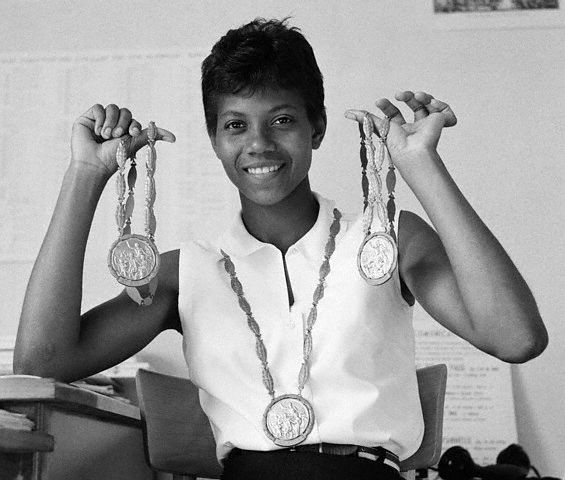
Written by Maegan Collins, Media & Communications Coordinator
Destined to a life of immobility, a child who suffered from severe illnesses grew up to become the fastest woman in the world, a civil rights activist, educator and an inspiration to a world of admirers. Now, 60 years after winning three gold medals at the 1960 Rome Olympics, we once again celebrate the woman who shattered barriers and overcame the impossible. That woman was Wilma Glodean Rudolph.
Wilma Rudolph was born in St. Bethlehem, Tennessee on June 23, 1940. She was born the 20th of 22 children. At a young age, she contracted several life-threatening illnesses including polio, scarlet fever and pneumonia. Doctors put her in a leg brace and told her she may never walk again. However, she had big dreams, and despite the odds, by age 12, not only was she able to walk, she began to run.
Wilma loved and excelled in sports. At Clarksville’s Burt High School, she played basketball, where Ed Temple, then Tennessee State University track and field coach, discovered her. He recruited her to the collegiate track and field team and in 1956, at the young age of 16, Wilma was on her way to the Olympics in Melbourne, Australia. While there, Wilma won a bronze medal in the 4×100 meter women’s relay. Already a successful Olympiad, Wilma returned home to her family, but she was not willing to hang up the running shoes yet.
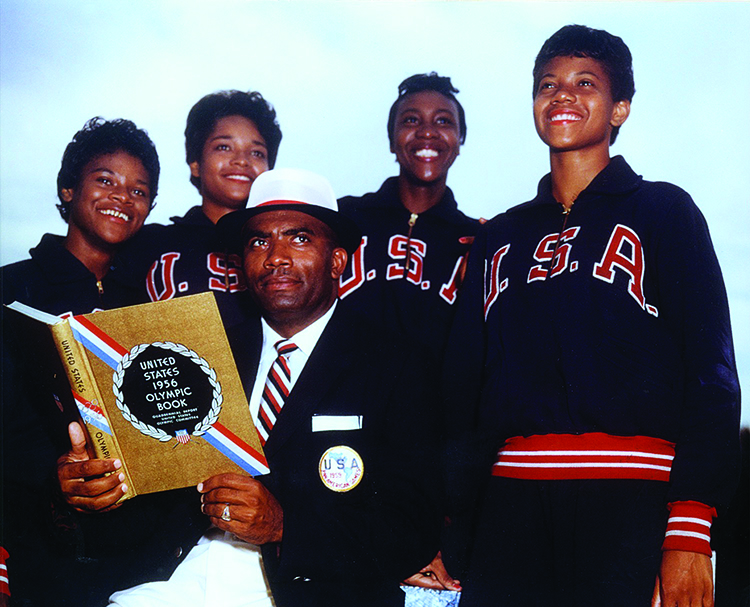
Coach Ed Temple and the U.S. Women’s team prepare for 1960 Olympics
Four years later, as a 20-year-old student at TSU, Wilma was a member of the U.S. Women’s team for the 1960 Rome Olympics. Wilma once again defied the odds and won three gold medals in the games, while simultaneously breaking several world records.
On September 2, 1960, Wilma won a gold medal in the 100-meter race, running it in 11 seconds flat, breaking the standing world record. On September 5, she won gold in the 200-meter race in 24 seconds, again breaking the world record. Then on September 9, Wilma and her teammates won gold in the 4×100 meter relay breaking the world record with a 44.5-second time. She became the first American female Olympian to win three gold medals in track and field during one Olympic game. Wilma was now an international sensation and became known as “the fastest woman in the world.”
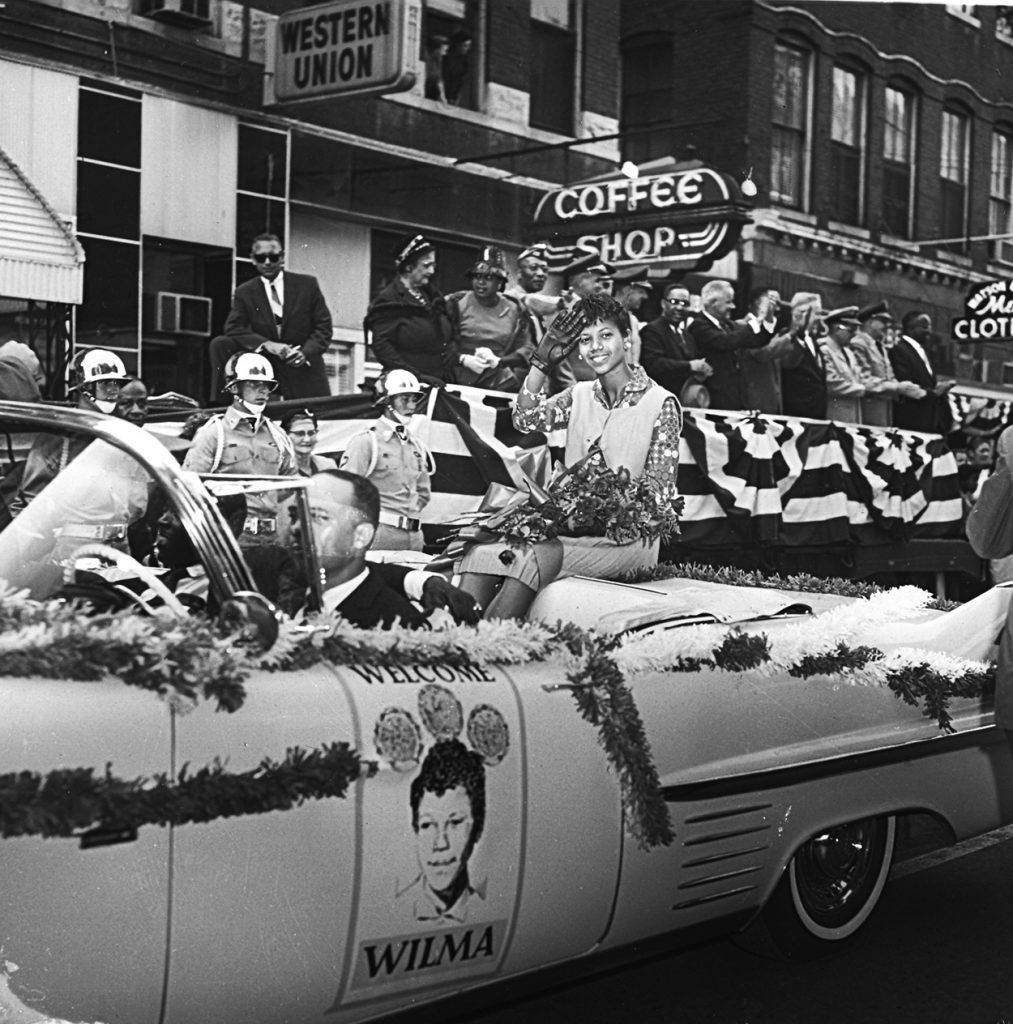
Wima leads the Welcome Back Celebration Parade
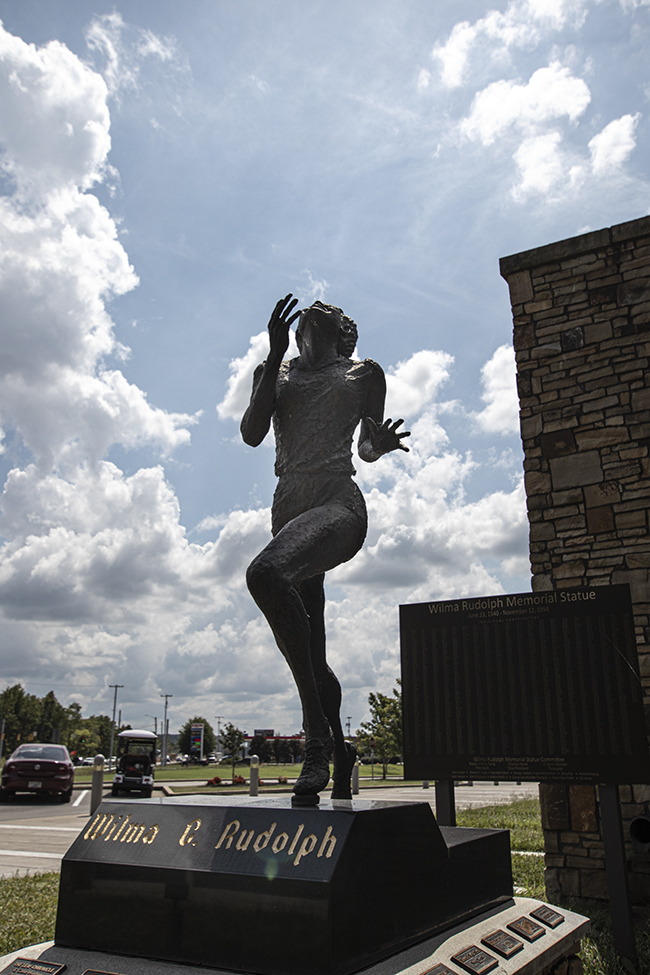
A statue sculpted by Howard Brown, located at the Wilma Rudolph Event Center in Clarksville
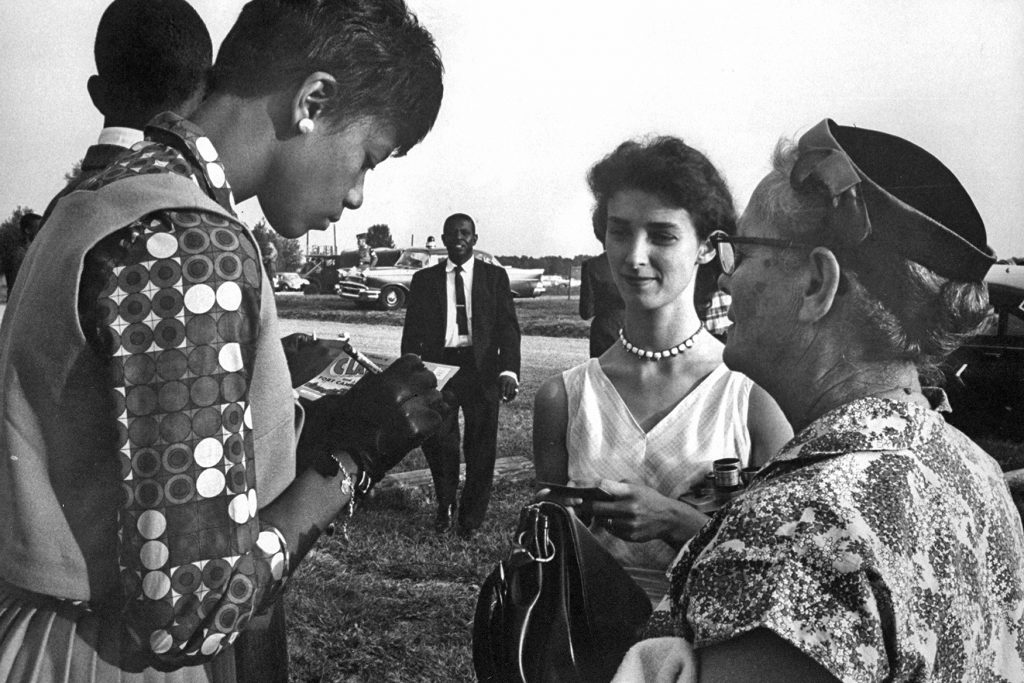
Wilma signing autographs
Upon her return home to Clarksville, the city proclaimed October 4, 1960, as Wilma Rudolph Day and her homecoming involved many celebration activities for the Olympian. However, at that time, Clarksville was a typical segregated southern town. A determined Wilma made use of her fame and explained to city officials that she would only attend the celebrations if they were racially integrated. Organizers agreed and Wilma Rudolph Day became the first large, integrated gathering in Clarksville history. County Judge W.D. Hudson commented at the banquet that evening, “…the absolute best music comes out of the piano when you play both the black and white keys together.”
Wilma retired from running and became an educator in her hometown. She continued to inspire young generations to overcome their own barriers. “Never underestimate the power of dreams and the influence of the human spirit,” Wilma once said. “We are all the same in this notion: The potential for greatness lives within each of us.”
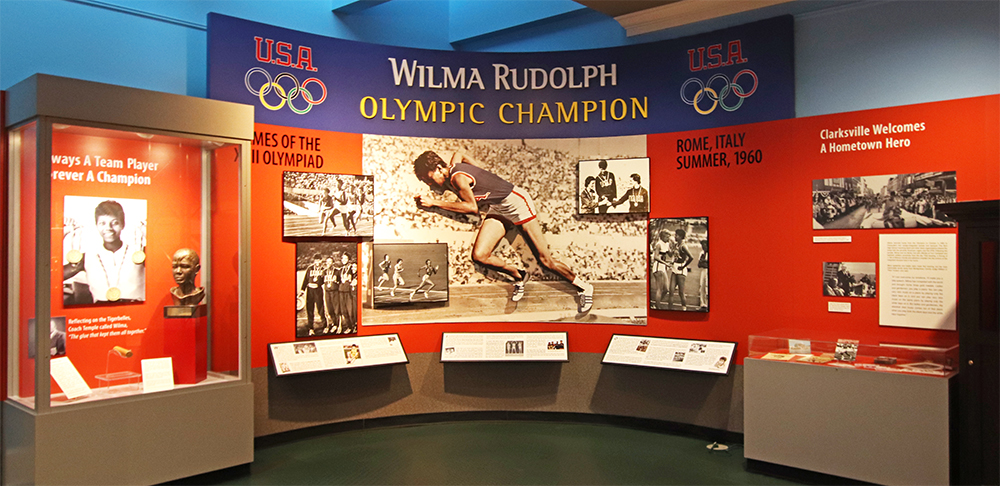
Customs House Museum & Cultural Center’s Challenges & Champions Sports Gallery
August 25 – September 11 is the 60th anniversary of the 1960 Rome Olympics and Wilma’s gold medal runs. The Customs House Museum & Cultural Center memorializes the local icon with a dedicated space for the Olympian in the Challenges & Champions Sports Gallery. The Museum encourages the community to remember the struggle of young Wilma Rudolph and how her running into greatness broke records and barriers that are forever written in history.